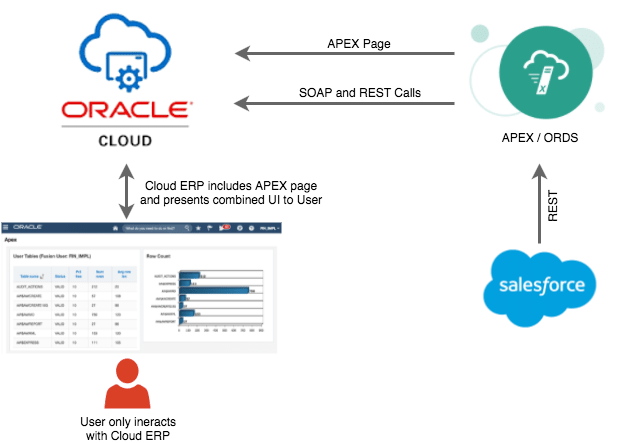This text was initially printed in The Telegraph.
WHEN we flip our consideration to monetary markets, the probabilities are we’re fascinated by shares not bonds. That’s unusual when you think about that the worldwide bond market is valued at about $300trn, greater than twice the worth of all of the shares on the earth. Think about a information bulletin closing with the fastened revenue equal of the FTSE 100. Or try to title it, for that matter. Bonds don’t get the eye they need to.
Shares are simple to know; we’re usually accustomed to the businesses that problem them; and the hyperlink between business success and a rising share worth is intuitive. Bonds are totally different; by some means faceless and boring even when they decide some necessary issues, like the price of a mortgage; much more complicated, they appear to go up in worth when the economic system’s struggling. No marvel buyers are likely to ignore this enormous and influential market.
Abruptly, although, bonds are again on buyers’ radars. Rising rates of interest have boosted the revenue they provide. In the meantime gung-ho central banks appear hell bent on driving the economic system into recession, leaving our equity-heavy portfolios trying susceptible. For years, bonds have been shares’ retro nation cousins. Now they’re all the fashion. It looks like a great second to at the least know the fundamentals. Right here’s what it’s worthwhile to know.
The very first thing to know about bonds is the considerably counter-intuitive level that their worth goes down when the revenue they pay, measured by their yield, goes up – and vice versa. In an excellent world, the bonds in your portfolio would pay you a excessive and dependable revenue whereas additionally going up in worth. So, it’s irritating that one appears to return on the expense of the opposite.
However hiding inside that obvious confusion is an funding alternative. If you happen to time it proper, you possibly can lock in a gorgeous yield when rates of interest are excessive after which profit from a capital achieve when the price of borrowing subsequently falls and bond costs transfer in the wrong way. This potential double whammy is likely one of the explanation why buyers are enthusiastic about bonds at the moment.
Related articles:
- https://bargame.xyz/world-inexperienced-bond-issuance-reaches-file-ranges/
- https://bargame.xyz/my-spouse-is-refusing-to-return-to-work-after-giving-delivery-she-says-she-desires-to-bond-with-the-infant-however-i-feel-shes-simply-being-lazy/
- https://bargame.xyz/a-feminine-james-bond-no_-whereas-subsequent-007-search-is-on-pierce-brosnan-urged-white-male-to-lead-7-8b-franchise/
- https://bargame.xyz/i-simply-had-a-towel_-james-bond-star-pierce-brosnan-endured-depressing-damage-after-intruder-broke-into-his-property/
- https://bargame.xyz/martin-lewis-busts-frequent-premium-bonds-myths-and-shares-tricks-to-win-extra/
Alternatively, when you purchase a bond that was issued when rates of interest had been decrease than they’re at the moment, you’ll pay lower than the quantity that you may be repaid at maturity. You might be principally swapping the revenue you’re lacking out on for a capital achieve. Take this instance: when rates of interest had been near zero, the UK authorities issued a bond paying what now appears to be like to be a paltry yield of simply 0.25%, maturing in January 2025. If you happen to had been to purchase this bond, it could price you just a little over £92 at the moment to safe a roughly assured £100 return in 18 months’ time. Even higher, that top single digit return over a yr and a half comes freed from capital good points tax.
There are two major components that decide the worth and yield of a bond. The primary is how doubtless buyers suppose it’s that they are going to get their a refund. This is named credit score danger. When a bond is issued by the federal government of a rustic that cares about its status and prints its personal forex, there may be virtually no probability that it’ll fail to pay what it owes. Firms alternatively can and do go bust at instances. Traders will demand a better revenue to compensate them for this danger. The hole between the revenue a authorities bond pays and that from a riskier issuer is named the yield unfold. When instances are robust (throughout a monetary disaster, for instance) that unfold can get very broad certainly.
The second driver of worth and yield is what an investor can earn from another funding, akin to placing their money on deposit. If a central financial institution raises rates of interest in a bid to get on prime of inflation, then the revenue that may be earned from risk-free investments like money deposits may even go up. And that may make the fastened revenue provided by a bond look out of the blue much less enticing. To make sure that a bond’s yield stays aggressive on this scenario, its worth will are likely to fall. This is named rate of interest danger. Bear in mind worth and yield transfer in the wrong way.
The subsequent factor to learn about bonds is that they don’t all reply in the identical technique to these adjustments in rates of interest. The time remaining till a bond matures and repays buyers their authentic funding is the primary determinant of its sensitivity to altering charges, recognized within the jargon as its ‘length’. There’s extra to it than simply the time to maturity, however all you really want to know is that the longer a bond is from compensation (and the decrease its preliminary yield) the extra reactive will probably be to adjustments in rates of interest.
Look once more at that short-dated UK authorities bond with solely 18 months left on the clock. If you happen to purchase it and maintain on to maturity you received’t care what occurs to rates of interest over the following yr and a half. The return is pre-determined. If alternatively you purchase a bond that’s 30 years away from being repaid, and also you suppose you would possibly need to promote it earlier than it matures, you’ll care a greatdeal. The issues skilled by pension funds final autumn when rates of interest spiked increased had been a consequence of them matching their long-term liabilities with long-dated, highly-interest-rate-sensitive bonds. Period issues.
Bonds have been described as boring by design, and investing in fastened revenue is actually extra sophisticated than considering, for instance, I like my iPhone so I’ll purchase Apple shares. However the fundamental rules are comparatively easy, particularly when you persist with the bonds issued by governments whose phrase, fairly actually, is their bond.
















